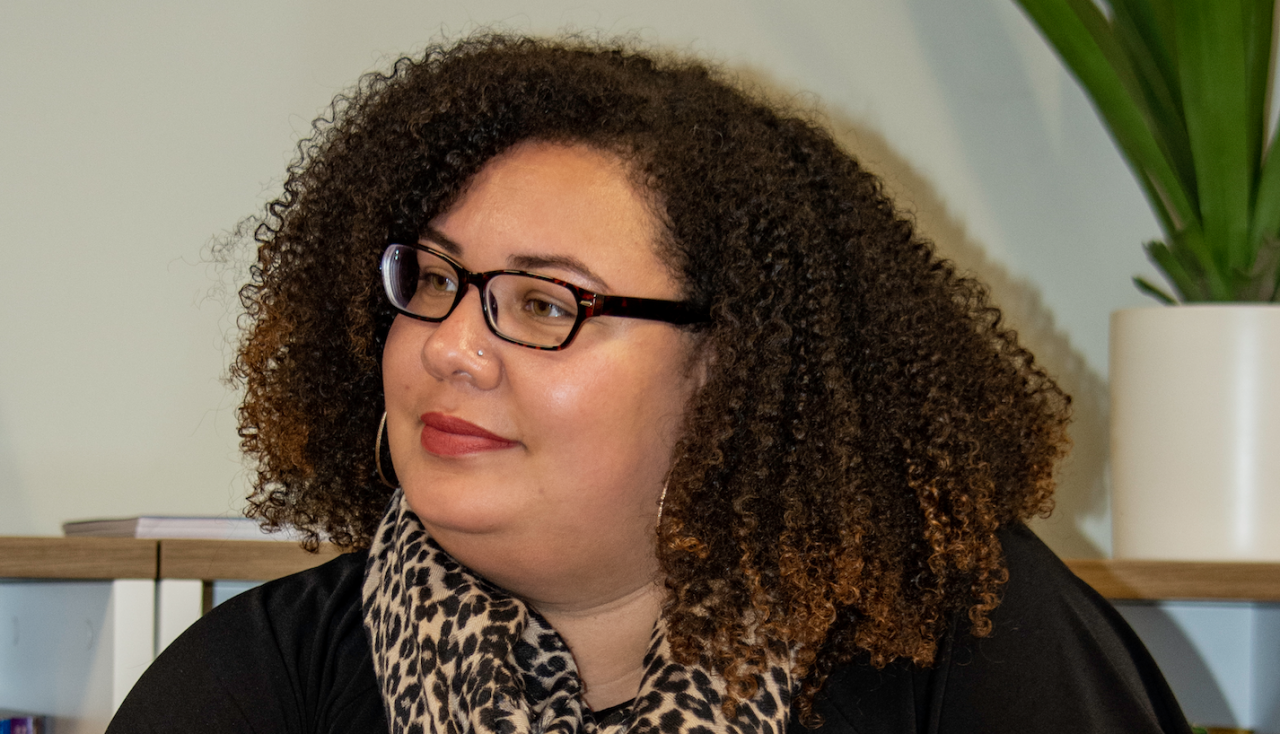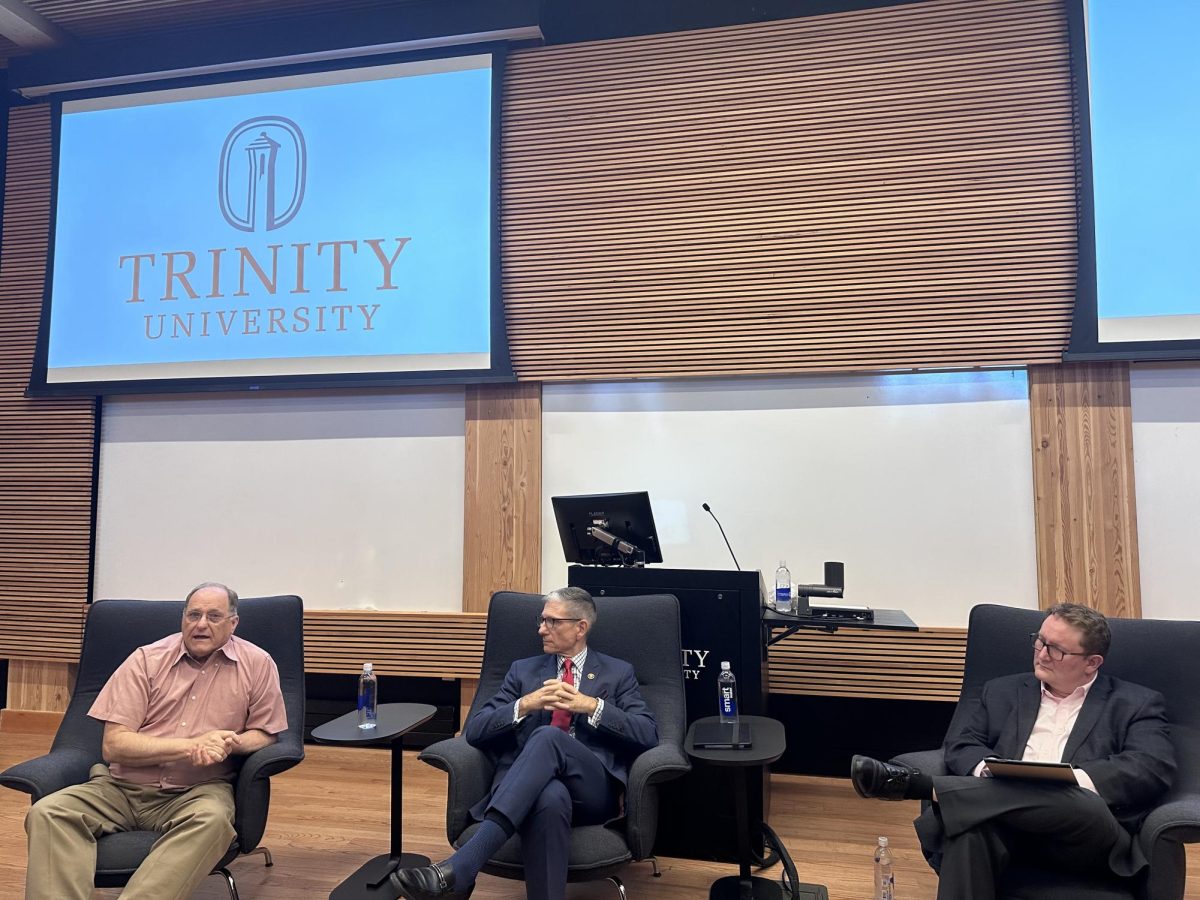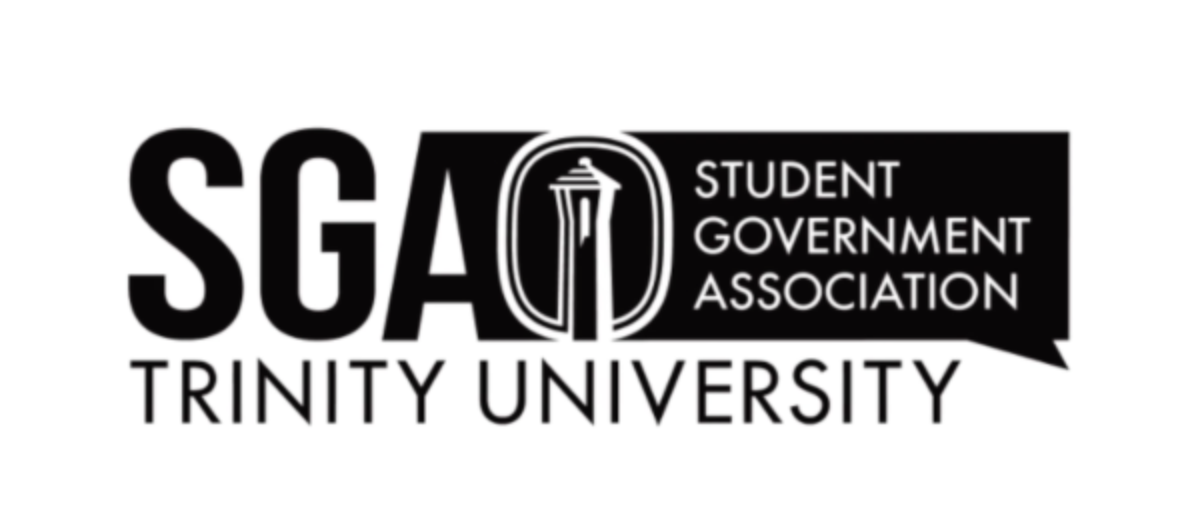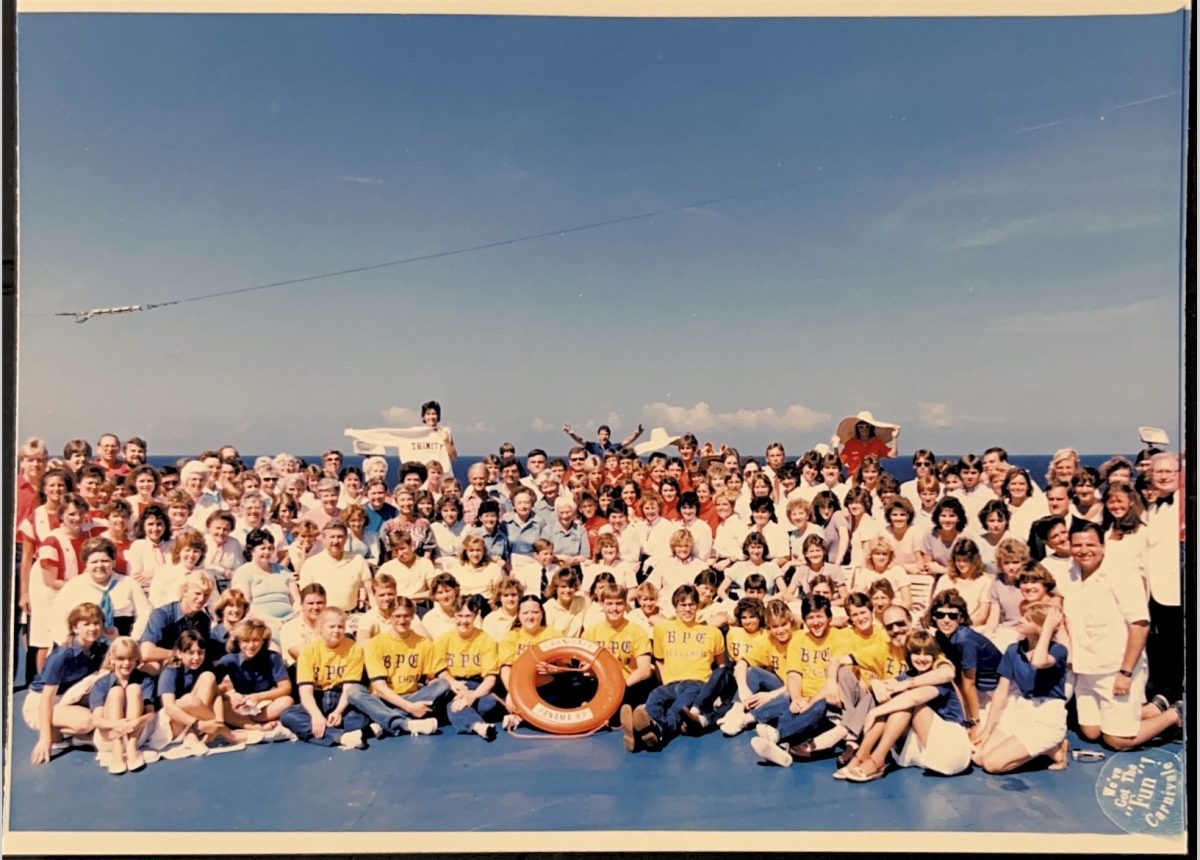Photo by Martina Almeida
When Alli Roman first came to Trinity, she had one major priority: foster community.
“I think in particular for students from unrepresented backgrounds, they might not see one another day to day, and so how do we create a space where they’re able to find each other and find that community and find that space,” Roman said of the mission of the Diversity and Inclusion Office (DIO).
Roman became part of the Trinity community in January 2018 with the creation of the DIO and her role as its director. However, after two years of helping the Trinity community define and redefine diversity, equity and inclusion, Roman is set to depart at the end of the month.
Roman will move on to be as the director for student support services at the Van Andel Institute in her hometown Grand Rapids, Michigan. Van Andel is a private biomedical research institute, and in her new position, Roman will work within the institute’s graduate school.
“You know, I’ve been here at Trinity in this moment where they’re building something new and building on things they’ve done, and it’s like a new chapter,” Roman said. “And now it’s like another new chapter, and it’s really exciting.”
In this role, Roman will primarily support the Ph.D students of the program, which she said was fitting for her, since her educational background is in social work.
Though Roman has been at Trinity for just two years, she leaves behind a legacy, especially within the DIO and with the progress she’s made with the help of student workers.
Roman knew early on that students were vital to the DIO’s success. She said she even mentioned it early on in her interview process with the university.
“I can have all the great ideas in the world but it doesn’t matter if it’s not meeting the needs of the students. It was important to me to have students who can take part in this,” Roman said.
Eight students work with Roman in the DIO, including junior Aria Gastón-Panthaki, who is a social justice peer educator. For Gastón-Panthaki, the DIO has had incredible influence on the Trinity community despite its recent establishment.
“It’s just gotten bigger. We’ve gotten more awareness,” Gastón-Panthaki said. “I think that we really made an impact on minority culture and minorities on campus.”
Gastón-Panthaki noted that the DIO space — which was upgraded from a single office to a larger space with the 2018 completion of the Coates Student Center renovation — has been a big part of the office’s success.
“The space itself, even if it had just been a space, it would’ve been something, but Alli wanted it to be more, and Alli worked hard to make it more,” Gastón-Panthaki said. “I think the DIO was built on the basis of making a safe space for minority students on campus.”
Jamie Thomspon, director of Student Involvement, agreed that the space was necessary for the DIO’s success. According to Thomspon, Roman’s role as director was an elevation of an existing coordinator role.
“I think in the director title and the creation of the office, it has allowed Trinity to embed diversity, equity and inclusion in many different spaces around campus,” Thompson said. “That’s where our real opportunity for change is and really shifting the needle in terms of this work on campus.”
And Roman has made it look easy, balancing the creation of social justice peer educators, promotion of activities and events like the commemoration of Reverend Martin Luther King Jr. or at one point advising Black Student Union or Trinity Diversity Committee.
“The reality is, honestly, is that this work is not easy. Here, down the street, across the country, it is not easy, and a lot of it is because we can’t program our way out of centuries of oppression. We can’t,” Roman said. “To have expectations around that is kind of hard, and thinking about what can be done, what can be changed, what are the ways we can create impact … It’s challenging, and it’s ever-evolving.”
Roman said diversity, equity and inclusion is an on-going conversation, but the struggle to create space for that discussion and following innovation is not Trinity-specific.
“There’s still a lot of work to be done, but there’s still a lot of work to be done everywhere,” Roman said. “But it doesn’t mean we shouldn’t try. Our biggest success has been creating space.”
Whether it’s a physical space or just offering student emotional guidance and support, Roman has worked to make students feel like they belong, especially in a place where they may not feel at home.
“Every student deserves to feel like they belong here, whether ‘here’ is here at Trinity, or whether ‘here’ is at their workplace in the future,” Roman said. “Unfortunately, for a lot of our students, the experiences they have here will continue on when they leave, so how do we equip them with the tools to be successful, to take up space, to not shrink themselves.”
Roman officially leaves Jan. 31, but her position will not be immediately filled. According to Sheryl Tynes, vice president for Student Affairs, there will be a search committee. Esther Kim from Student Involvement and Michael Soto from Academic Affairs have agreed to co-chair.
“We are looking for someone student-centered, who can also work across the university to build community with faculty and staff,” Tynes wrote in an email interview. “In reviewing this position and who the primary beneficiaries should be (in a process before we hired Alli), it was agreed that students are the most important constituency for this position.”
Until the position is filled, the DIO will still be open and staffed by student workers, and Student Involvement will help oversee the space, according to Tynes.














